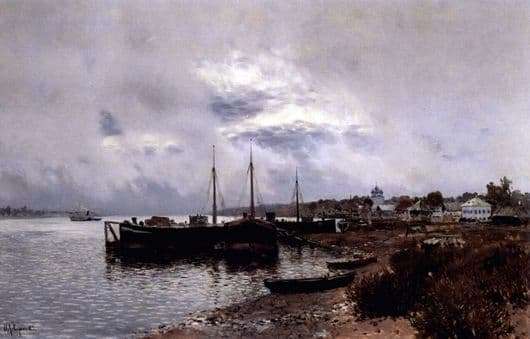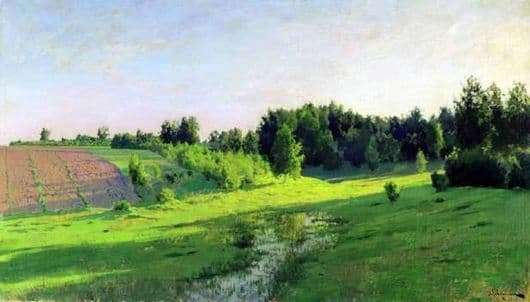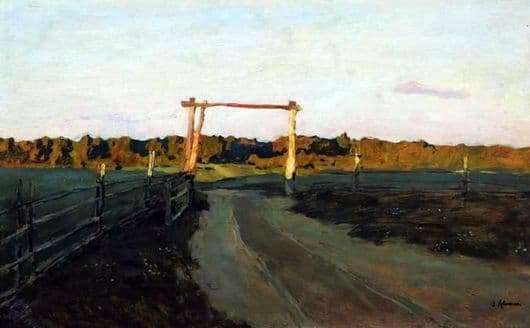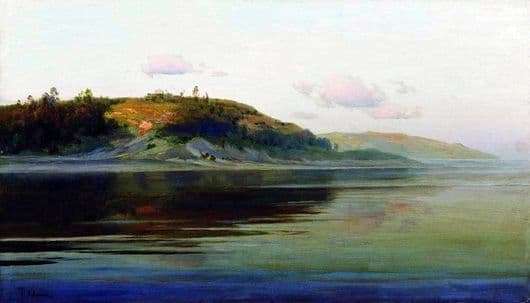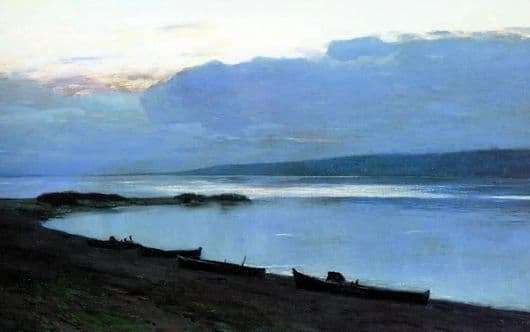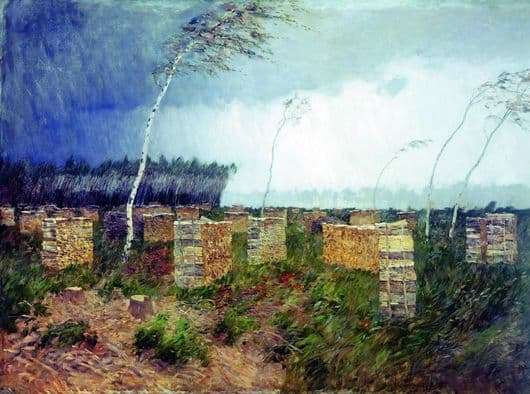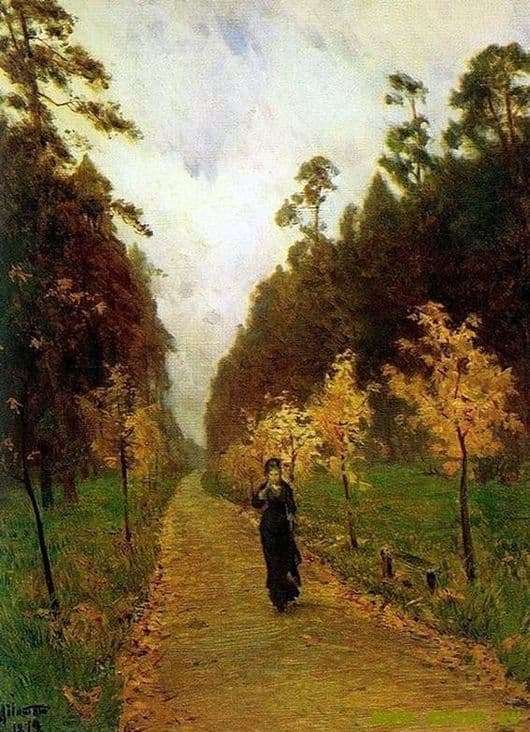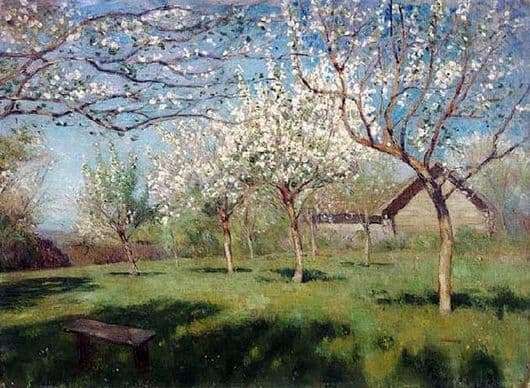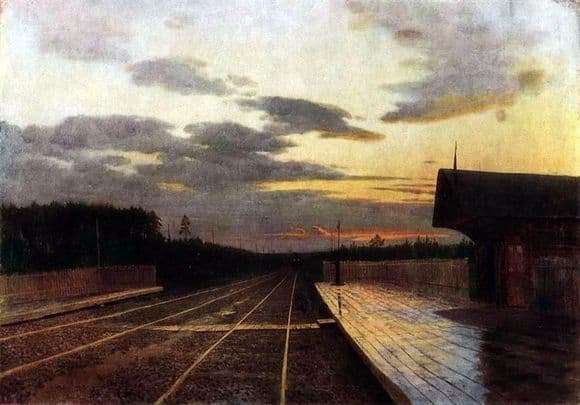
We see twilight. Platform, somewhere in the distance you can see a train, bright sheaves of light coming from it. The platform is completely deserted. The rails are wet, as recently it had rained. In the puddles lights are bizarrely reflected. It is quite possible that very soon a lingering rain will fall again, which will not end until the very morning.
Levitan creates a magnificent landscape, in which, at first glance, there is nothing special. This is a common picture that can be seen every day. How can she be beautiful? Levitan – a real master. He sees the splendor where the average person sees only dullness and despondency.
The picture is painted in rather dark colors. But despite this, the viewer does not create a gloomy impression. The fact is that art was able to use the play of light and shadow. Yes, the sky is quite dark. The clouds are still hanging over the apron, and quite possibly they will rain again. But the reflections of light in the sky and on the ground give us hope that after the night there will be day, and after the rain the sun will come out again.
Levitan does not just depict a deserted platform. He gives us his impressions that this picture has made on him. The broad strokes of his hand snatch the rails from the darkness, the trees in the distance, orange flashes in the sky. It seems that Levitan wants to tell us that the familiar can also be beautiful. It is only necessary to see and feel it. There is no sadness in gray discouragement, since one must always believe in the best.
Levitan was a master of landscape. This fact is widely known. But here we look at the artist with different eyes. It turns out that he masterfully portrayed not only the beauty of nature, but also the city. He sees something special where, seemingly, it does not exist at all. But he is a master to notice the special and notice the almost imperceptible.
Levitan helps us to perceive a completely dull station, which, as it turns out, is capable of evoking a lot of curious thoughts.
Description of the painting by Isaac Levitan “Evening after the rain”
